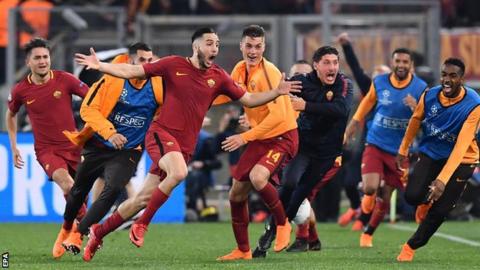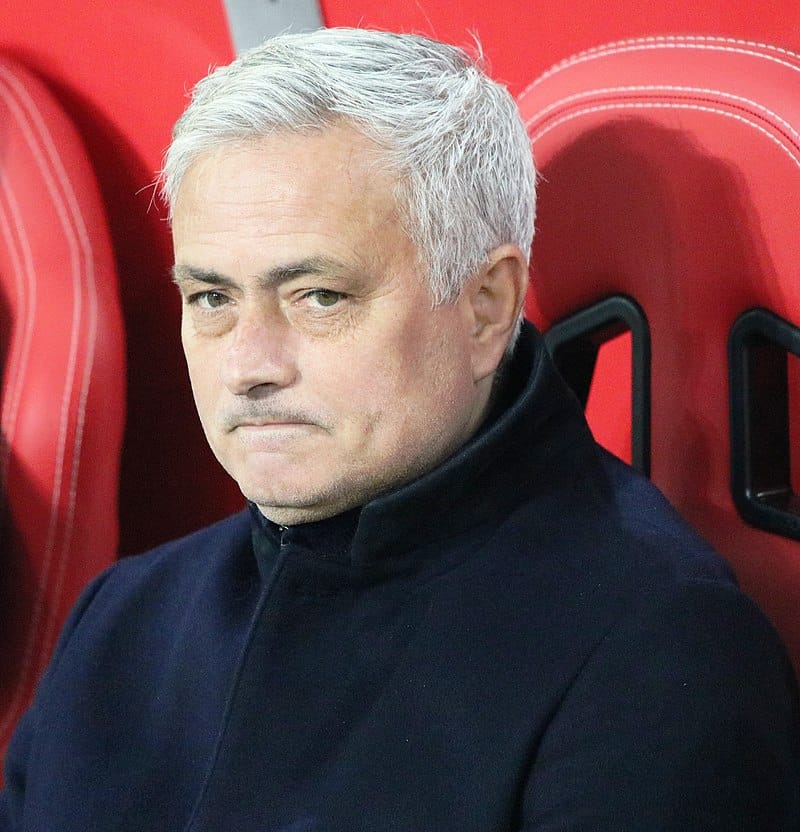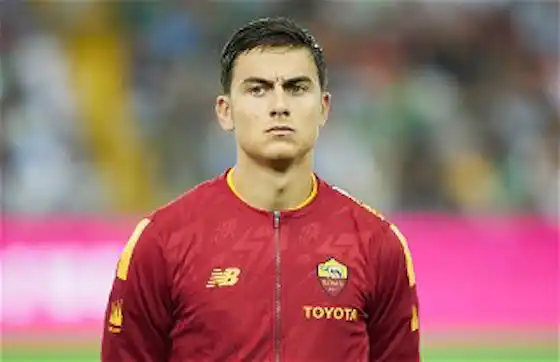A.S. Roma on cusp of its highest European pinnacle and a city is about to explode

For the 23 years I was a sportswriter for the Denver Post I saw the disappointment in town every time the Denver Nuggets’ season ended before the NBA Finals. The Nuggets were as predictable as snowfall. Snow fell in Denver, and so did the Nuggets. Every year. For 46 straight years. By the time I showed up in 1990 halfway through their futility, the population merely greeted both the same way, with a resigned shrug.
On Thursday, that empty hole in Denver’s sporting soul may begin to close. The Nuggets, who have more playoff appearances without winning a title than any U.S. pro team, begin their first NBA Finals. As a converted sports fan, I finally know how my old friends must feel after I always brushed away the Nuggets’ annual playoff loss with another deadline and another Tanqueray-and-tonic. I had no more emotion tied to the Nuggets’ playoff chances as I did the sheriff’s race in Eagle County.
Now I understand. On Wednesday night, my A.S. Roma plays for its biggest European cup title. We could reach our highest continental glory in our 96 years of existence. Considering the team formed two years after Benito Mussolini became dictator, Wednesday night is a big deal.
A.S. Roma vs. Sevilla
We play Sevilla in Budapest for the championship of the Europa League, a second-tier European competition equivalent to college basketball’s NIT. Astonishingly, this would be our second European trophy in a row. Last season we won the inaugural Conference League, a third-tier competition equivalent to college hoops’ BCI.
That goes down as our lone official European trophy although many count the 1961 Inter-Cities Fairs Cup, the forerunner of the UEFA Cup which became the Europa League. But UEFA, the governing body of European soccer, didn’t organize the Fairs Cup and, thus, it’s not recognized as an official European title. Besides, the first clubs could take part if their cities hosted trade fairs.
Sorry. Never in Olympic Stadium’s raucous Curva Sud have I seen any banners trumpeting the ‘61 Fairs Cup. I don’t count it.
As a formerly jaded ink-stained wretch, I was always more emotional about missing last call than whether the team I covered won or lost. In my transition from sports writer to sports fan in Rome, I’ve learned to cherish the emotion sport brings me. With A.S. Roma, it doesn’t happen often.

I remember welling up a bit five years ago when I went to the stadium and witnessed Roma pull off a stunning 3-0 upset over Barcelona to reach the Champions League semifinals. Rome sportswriters tried hiding their tears in the press tribune. Later that night I stood on my terrace in Testaccio, the neighborhood where the club formed in 1927 in a building just a few blocks from my apartment, and listened to cars honking all night.
I wondered if Rome sounded like that when the U.S. liberated the city from the Nazis.
I’m expecting a similar reaction if we win Wednesday, from the city and me. European soccer is different than American sports. The season is so long. With continental cups, domestic cups and national team games, European soccer’s offseason is about an hour and a half. I watch nearly every Roma match from August to June. I read Italy’s sporting press at least twice a week. The roller coaster ride Roma gives me every season is more volatile than any relationship I’ve had.
When you’re a Roma fan, or as we’re called here, Romanisti, you resign yourself to supporting a second-tier club. We don’t have the cash Inter Milan or A.C. Milan have. We don’t have the name of Juventus. We last caught lightning in the bottle that Napoli found this season in 2000-01, our last of three Serie A titles.

But our owners, silent Dan Friedkin and his equally mutant son, Ryan, have been huge hits. They went big time on the manager. Before last season, they lured in one Jose Mourinho, nicknamed “The Special One,” not for his ego, which would warrant it, but for winning titles in four countries, two Champions Leagues and two Europa League titles.
The Mourinho effect
Granted, he may have taken the Friedkins’ offer in order to build back his once spotless rep after Tottenham gave him “the big haircut” in April 2021. Roma’s fans don’t care. They’ve sold out every game this season. He brought us our first official European title. He has us on the verge of a second.
In the 21 years I’ve followed the club, behind Roma god Francesco Totti, Mourinho is the most popular man connected with the organization. I’m waiting to see the statue of Julius Caesar on Via dei Fori Imperiali to be replaced by a bronze Portuguese guy in a Roma sweatshirt.

Wednesday’s game has so many implications beyond Roma’s sparse trophy case. All season Mourinho has fended off rumors about other teams trying to lure him away. In January he said he turned down Portugal’s offer to coach the national team. Brazil reportedly wanted him. Now he’s swatting away rumors that he’s on Paris St.-Germain’s radar.
His contract runs through next season. If he wins Wednesday and sees the city weep in his wake and gift him Trajan’s Column in gratitude, could anyone named The Special One leave a place that sees him so special? Then again, would he use two straight European cups to catapult him to another elite job?
If they lose, I worry he’ll decide he has taken Roma as far as its limited finances can take it. The perpetually proposed new stadium allegedly breaks ground – Rome mayor Roberto Gualtieri says – next year for a 2027 opening. But in Rome it takes that long to get a tabacchi built. I doubt I’ll live long enough to see a game in a new stadium. Mourinho, 60, may have options from soccer’s glitterati. Why would he stay to grind away in second-tier cup competitions?
What’s at stake
On the field, this game holds Roma’s entire season in the balance. We have slowly faded from Serie A’s top four spots that qualify for next season’s Champions League. With one game left we stand sixth, one point behind Atalanta. Sixth place qualifies us for a playoff to enter the Europa League again. In fact, if we lose or tie the season finale at home Sunday to Spezia, desperately trying to fight off relegation, and Juventus, one point behind us, wins at a Udinese club going nowhere, we’ll finish seventh. That would send us again to the Conference League.
Mourinho didn’t come to Rome to manage in the Conference League.
However, the winner of the Europa League Wednesday earns an automatic spot in next season’s Champions League. That means multi millions in revenue, massive prestige and a shot at the most prestigious club title in the world.
Hello, Mr. Mourinho. You remember Real Madrid and Manchester United, don’t you? Welcome back.

Sevilla is favored
Being the basic pessimist that I am, I don’t like our chances. Sevilla is to the Europa League what the New England Patriots were to the Super Bowl. (I’d use the more appropriate NIT but who remembers who won the NIT?) Sevilla has won the Europa League six times, twice as many as any other club, and all have come since 2006, the most recently three years ago. It has never lost a Europa League final.
Every season starts anew, but I believe in predestiny more than destiny.
Both teams stumble into Budapest. Sevilla has tied four of its last five matches, including Wednesday’s 1-1 pratfall against last-place Eiche and stands ninth place in La Liga. Roma has a six-game winless streak in Serie A with four ties and two losses. In beating back four Europa League opponents to reach Budapest, Roma has yet to score an away goal.

Argentine World Cup-winner Paulo Dybala, our leading scorer with 11 goals and our prize offseason pickup, has battled a calf injury and won’t start.
I will be under my own pressure just to watch the game. I’m in Tropea, a lovely beach town in Calabria, in a week-long self-imposed writing exile. My train arrives back in Rome at 8:25 p.m. Wednesday. Kickoff is at 9. I’m going to race to watch the game at The Flann O’Brien, the Irish pub a brisk 15-minute walk from the train station.
Marina, my fellow Romanista, will meet me and we’ll join half the city of 3 million people hoping we beat the mortal piss out of Sevilla.
Maybe afterward, for the first time, Marina will see me cry.


May 30, 2023 @ 2:33 pm
Sevilla would be St John’s in your analogy.
May 31, 2023 @ 7:04 am
See? I didn’t even know THAT.
May 31, 2023 @ 1:01 pm
“equally mutant son, Ryan.”
Seriously?
June 8, 2023 @ 10:41 am
Yes. Seriously. Owners have a professional obligation to talk to the media. The fans who support their club deserve to know what’s going on, even if it’s just to thank them for the support. The Friedkins say nothing. Ever.
June 9, 2023 @ 4:11 am
I get it John but that makes them mutes not necessarily mutants. Mutants is a bit rough.